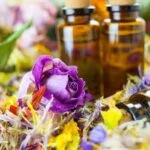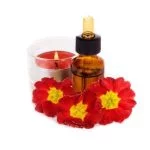Aromatherapy has long been recognized for its powerful ability to alleviate stress and promote relaxation. As the demands of modern life continue to take a toll on our mental health, the use of essential oils for stress relief has become increasingly popular. In this article, we will explore the world of aromatherapy and how it can be effectively used to combat stress and promote overall well-being.
Aromatherapy involves the use of essential oils derived from plants to improve physical, mental, and emotional well-being. These concentrated plant extracts are believed to have therapeutic properties that can positively impact our mood and emotions. When it comes to stress relief, aromatherapy works by stimulating smell receptors in the nose that then send messages through the nervous system to the part of the brain that controls emotions.
Stress can have profound effects on both the body and mind, ranging from increased heart rate and blood pressure to feelings of anxiety and despair. Therefore, it is crucial to find effective means of managing stress in order to maintain a healthy lifestyle.
Aromatherapy offers a natural and holistic approach to addressing stress, making it an appealing option for those seeking alternative methods of stress relief. In the following sections, we will delve into the science behind aromatherapy for stress relief, explore different essential oils known for their calming properties, and discuss techniques for incorporating aromatherapy into daily routines for long-term stress management.
The Science Behind Aromatherapy for Stress
Aromatherapy has been used for centuries as a natural remedy for stress relief, but how exactly does it work? The scientific research behind aromatherapy for stress provides insight into the physiological and psychological effects of essential oils on the body and mind.
Scientific Research Supporting Aromatherapy
Numerous studies have shown that certain essential oils can help alleviate stress and anxiety. For example, researchers have found that inhaling lavender essential oil can reduce cortisol levels, which is a hormone associated with stress. Other studies have demonstrated that the scent of rosemary oil can improve mood and decrease feelings of anxiety. These findings suggest that aromatherapy may have measurable effects on the body’s stress response.
Effects of Different Scents on the Brain
The sense of smell is closely linked to the brain’s limbic system, which plays a key role in emotions, memories, and arousal. When we inhale specific scents, they can trigger responses in the limbic system that influence our emotional state.
For example, citrus scents like lemon or orange are known for their uplifting and energizing properties, while floral scents like jasmine or rose are often used to promote relaxation and calmness. Understanding how different scents affect the brain allows us to tailor aromatherapy blends to target specific emotional needs.
By understanding the science behind aromatherapy for stress relief, individuals can make informed choices about which essential oils to use and how to use them effectively. Whether through inhalation or topical application, harnessing the power of these natural plant extracts can provide a holistic approach to managing stress and promoting overall well-being.
Best Essential Oils for Stress Relief
When it comes to using aromatherapy for stress relief, choosing the right essential oils is essential for achieving the desired results. Various essential oils offer different properties that can help alleviate stress and promote relaxation. Here are some of the best essential oils known for their stress-relieving properties:
- Lavender: Lavender essential oil has been widely used for its calming and soothing effects on both the mind and body. It is known to reduce anxiety and improve sleep quality, making it an excellent choice for managing stress.
- Chamomile: Chamomile essential oil is often used to promote relaxation and ease feelings of tension. Its gentle floral scent can help calm the mind and induce a sense of peace, making it beneficial for relieving stress.
- Bergamot: Bergamot essential oil is known for its uplifting and refreshing aroma. It can help reduce feelings of anxiety and depression, making it a great choice for managing stress and improving mood.
It’s important to note that individual responses to essential oils may vary, so it’s recommended to experiment with different options to find the most effective ones for personal needs. When choosing essential oils for stress relief, consider personal preferences and any potential sensitivities or allergies.
In addition to these top essential oils, other options such as frankincense, ylang-ylang, and rosemary also offer stress-relieving benefits. Experimenting with different blends or single oils can help determine which ones work best when creating a personalized aromatherapy mix for stress relief. By carefully selecting the right essential oils, individuals can harness the power of aromatherapy to effectively manage stress and promote overall well-being.
How to Use Aromatherapy for Stress Relief
Aromatherapy is an effective and natural way to alleviate stress and promote relaxation. There are several methods of using essential oils for stress relief, and each has its own benefits. One common method is through the use of diffusers, which disperse the aroma of the essential oils into the air, allowing you to inhale them and experience their calming effects.
Another popular method is topical application, where essential oils are diluted with a carrier oil and applied directly to the skin, such as in massage therapy. Lastly, inhalation involves directly smelling the essential oil from the bottle or placing a few drops on a tissue.
Regardless of the method chosen, it’s important to choose high-quality essential oils when using aromatherapy for stress relief. Look for 100% pure essential oils without any synthetic additives, as these will provide the best results. In addition, it’s important to dilute essential oils with a carrier oil before applying them topically to avoid skin irritation.
For those who prefer a more portable option, personal inhalers are available that allow individuals to carry their preferred aromatherapy mix for stress with them wherever they go. These can be discreetly used throughout the day during moments of heightened stress or anxiety.
When incorporating aromatherapy into daily routines for long-term stress management, consistency is key. Taking time each day to practice aromatherapy can lead to significant improvements in overall well-being and mental health.
| Aromatherapy Method | Benefits |
|---|---|
| Diffusers | Allows inhalation of essential oils throughout a room |
| Topical Application | Can be combined with massage therapy for added relaxation |
| Inhalation | Suitable for discreet use throughout the day |
| Personal Inhalers | Portable option for continuous access to individual aromatherapy blends |
DIY Aromatherapy Mixes for Stress Relief
Aromatherapy has long been used as a natural remedy for stress relief. Creating your own aromatherapy mixes for stress can be a great way to personalize your relaxation routine and cater to your specific needs. By combining different essential oils, you can create blends that are both effective and pleasing to your senses.
One popular DIY aromatherapy mix for stress relief is a blend of lavender, bergamot, and chamomile essential oils. Lavender is known for its calming properties, while bergamot can help reduce anxiety and improve mood. Chamomile also has soothing qualities that can promote relaxation. By combining these three essential oils in equal parts, you can create a powerful stress-relief blend that can be diffused at home or added to a carrier oil for topical application.
Another effective aromatherapy mix for stress relief includes the essential oils of ylang-ylang, frankincense, and clary sage. Ylang-ylang is often used in aromatherapy for its uplifting and calming effects, while frankincense is known to help reduce feelings of anxiety and promote deep breathing.
Clary sage has been shown to lower cortisol levels and induce feelings of relaxation. Mixing these oils together in the proper ratios can yield a potent stress-relief blend that can be used in a variety of ways.
When creating DIY aromatherapy mixes for stress relief, it’s important to start with high-quality essential oils and use them sparingly. Essential oils are highly concentrated plant extracts, so they should always be diluted before being applied directly to the skin or inhaled over long periods of time.
| Essential Oil Mix | Effect |
|---|---|
| Lavender, Bergamot, Chamomile | Promotes Relaxation & Reduces Anxiety |
| Ylang-Ylang, Frankincense, Clary Sage | Uplifts Mood & Lowers Stress Levels |
Aromatherapy Techniques for Managing Stress in Different Settings
Aromatherapy has been used for centuries as a holistic approach to stress relief and overall well-being. It works by stimulating the olfactory system, which then sends a signal to the limbic system in the brain, the area that controls emotions and memories.
This can lead to various physical and psychological effects, including relaxation, improved mood, and reduced stress levels. Stress can have detrimental effects on the body and mind, leading to issues such as high blood pressure, insomnia, anxiety, and more.
Scientific research has shown that aromatherapy can be an effective tool for managing stress. Studies have demonstrated that certain essential oils have the ability to reduce cortisol levels and induce a state of relaxation. Different scents have different effects on the brain – for example, lavender is known for its calming properties, while citrus scents can help uplift mood and reduce anxiety. This diversity in scent effects allows for a personalized approach to stress relief through aromatherapy.
When it comes to using aromatherapy for stress relief, there are various techniques that can be applied in different settings. At home, individuals can use essential oil diffusers to fill their space with calming scents or create DIY room sprays or linen mists. In the workplace, a personal inhaler or applying a few drops of essential oil on a tissue can provide quick relief during stressful moments.
When on the go, carrying a roll-on bottle with an aromatherapy mix for stress can offer support whenever needed. Incorporating aromatherapy into daily routines helps establish long-term stress management practices.
Overall, incorporating aromatherapy into daily life can bring numerous benefits beyond just stress relief. Through its holistic approach to well-being, aromatherapy has the potential to support mental and emotional health as well. By exploring different techniques and experimenting with personalized blends of essential oils, individuals can find what works best for them in managing their stress levels day-to-day.
Benefits of Aromatherapy for Overall Well-Being
Aromatherapy has long been known for its ability to alleviate stress and promote relaxation, but its benefits extend beyond just stress relief. Research has shown that certain essential oils can have a positive impact on mental and emotional well-being. The use of aromatherapy in this way can help individuals manage anxiety, improve mood, and even enhance cognitive function.
Supporting Mental Health
There is increasing evidence to suggest that aromatherapy can be beneficial for those dealing with various mental health issues such as anxiety and depression. Certain essential oils, such as lavender, bergamot, and chamomile, have been found to have calming effects on the mind and body. When used in a controlled environment, these oils can help reduce feelings of anxiousness and promote a sense of peace.
Promoting Emotional Balance
In addition to supporting mental health, aromatherapy also has the potential to promote emotional balance. Essential oils like rose, ylang-ylang, and frankincense are known for their mood-enhancing properties. These scents can help lift spirits, reduce feelings of sadness, and create an overall sense of well-being. By incorporating these oils into their daily routine, individuals may find it easier to maintain emotional balance amidst life’s stresses.
Enhancing Cognitive Function
Another benefit of aromatherapy for overall well-being is its potential to enhance cognitive function. Certain essential oils like peppermint and eucalyptus have invigorating qualities that can help improve focus, concentration, and mental clarity. Using these scents in a work or study environment may lead to increased productivity and improved cognitive performance.
By understanding the holistic benefits of using essential oils for aromatherapy, individuals can embrace this practice not only for stress relief but also for promoting mental and emotional wellness. Incorporating aromatic blends into daily routines at home or work settings might contribute positively towards managing stress levels effectively over time.
Conclusion and Further Resources
In conclusion, aromatherapy has been scientifically proven to be an effective method for relieving stress and promoting overall well-being. The use of essential oils can have a powerful impact on the mind and body, helping to reduce tension, anxiety, and other symptoms of stress. By harnessing the natural healing properties of certain scents, individuals can create personalized aromatherapy mixes for stress relief that are tailored to their specific needs.
As discussed in this article, there are various essential oils known for their stress-relieving properties, such as lavender, chamomile, and bergamot. These oils can be used in a variety of ways, including through diffusers, topical application, and inhalation. Additionally, individuals can create their own DIY aromatherapy blends for stress relief by combining different essential oils based on their preferences and needs.
Furthermore, incorporating aromatherapy into one’s daily routine can lead to long-term stress management benefits. Whether at home, work, or on the go, aromatherapy techniques can be easily implemented to promote relaxation and peace of mind. As readers explore further resources on aromatherapy for stress management, they will discover a wealth of information and guidance to support their journey toward improved mental and emotional wellness through the use of essential oils.
Frequently Asked Questions
What Is the Best Blend of Oils for Stress?
The best blend of oils for stress typically includes lavender, chamomile, and frankincense. Lavender has calming properties, chamomile helps with relaxation, and frankincense can aid in reducing anxiety.
What Aromatherapy Oil Is Good for Stress?
When it comes to aromatherapy oils for stress, lavender is a popular choice. Its soothing and calming scent is known to help reduce stress and promote relaxation, making it a go-to oil for managing stress.
What Essential Oils Can I Mix for Anxiety?
There are several essential oils that can be mixed to help with anxiety. Some common ones include lavender, bergamot, and ylang-ylang. These oils have calming and balancing properties that can help alleviate feelings of anxiety when blended together.

Are you looking for a natural way to improve your health and wellbeing?
If so, aromatherapy may be the answer for you.





